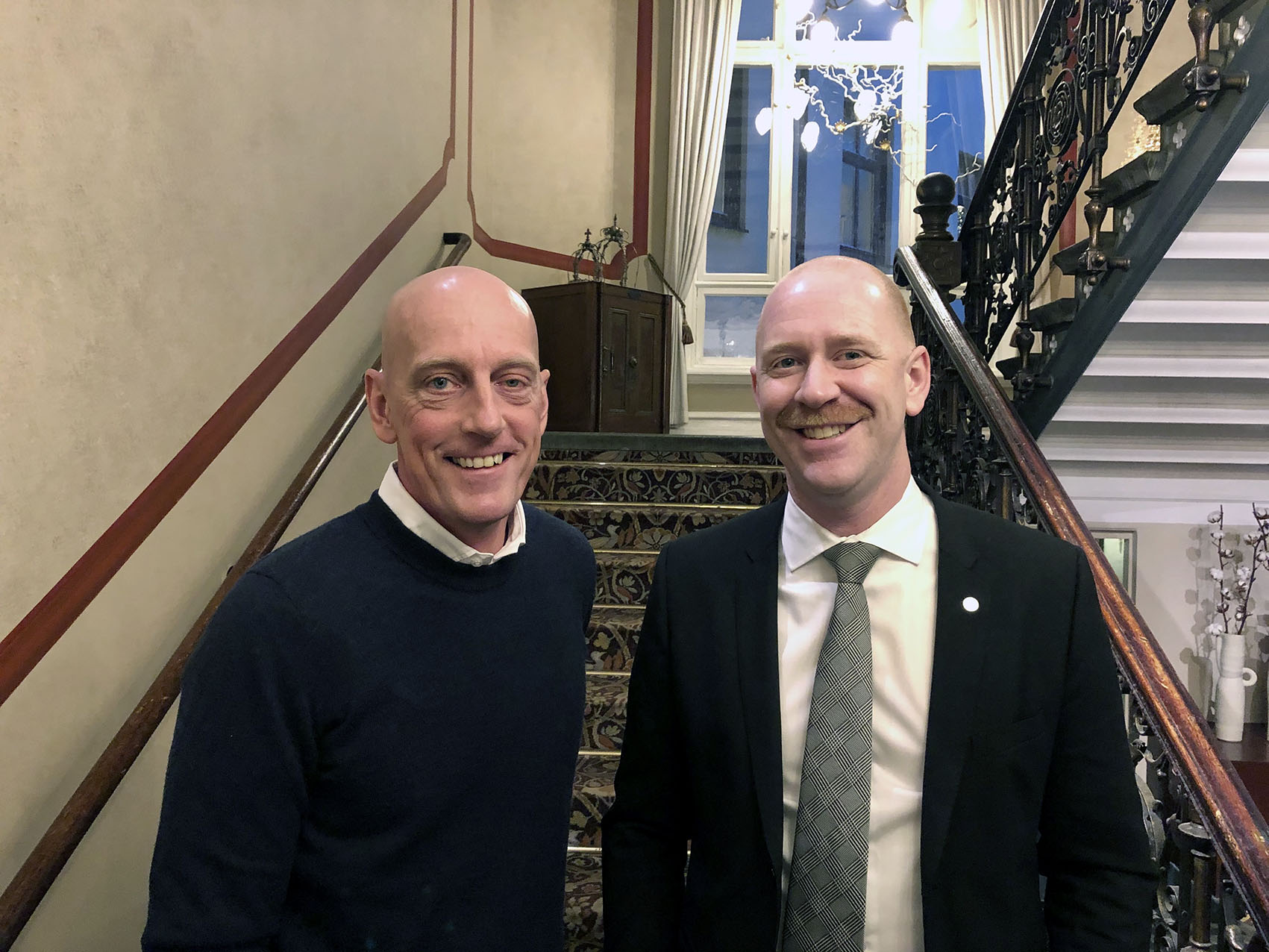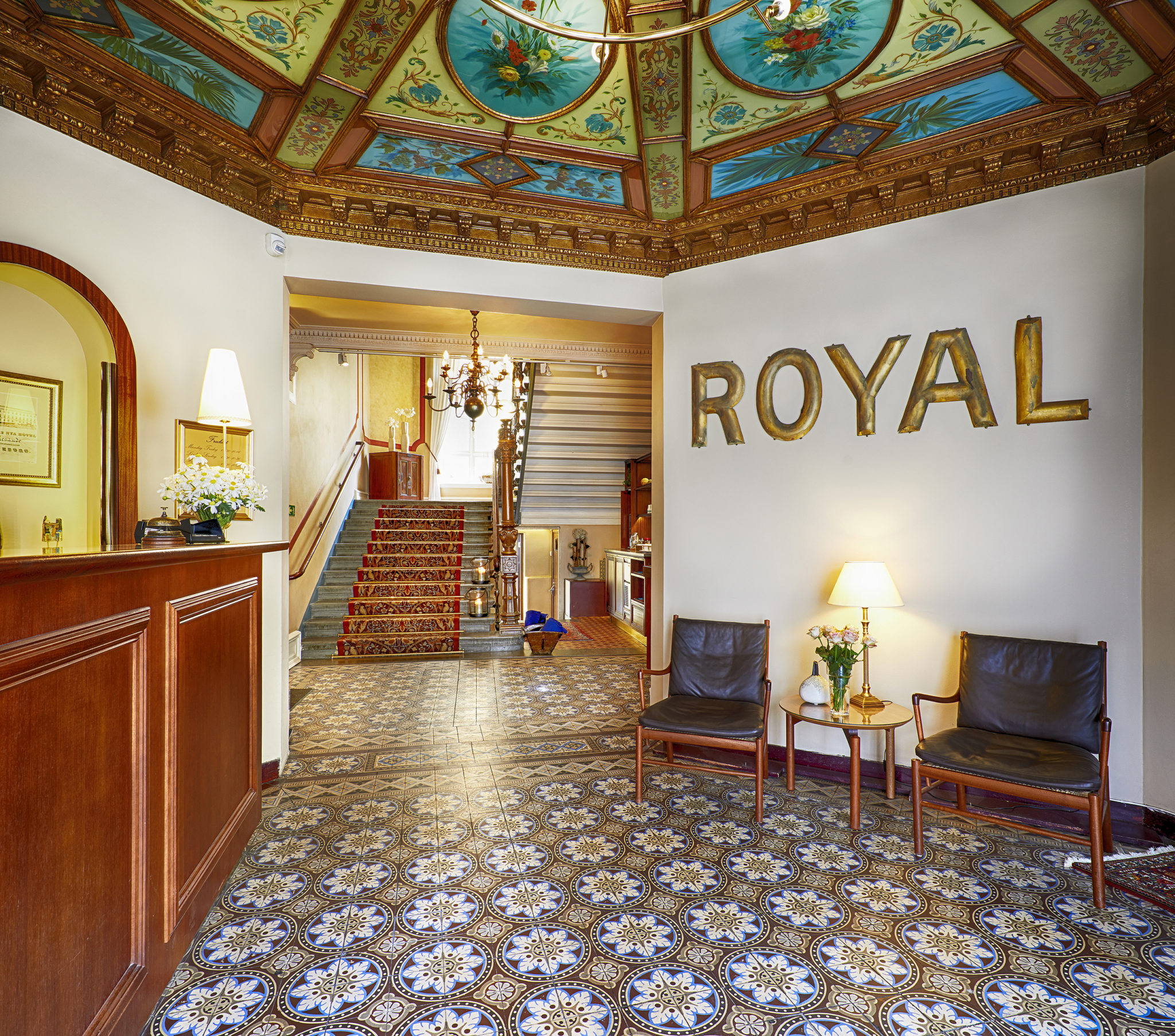“Gothenburg is a great city to run a hotel in.”
Hotel Royal opened 168 years ago on a street corner near Gothenburg Central Station. Its business concept has always been the same: to provide personal service with a focus on the customer. Hotel Royal was recently named Business Hotel of the Year and looks forward to a fantastic year ahead. A lot is happening in Gothenburg’s hotel market.

Last year Gothenburg had more hotel guests than in any previous year. Five million guest nights were calculated in December. And the forecast for the coming year looks promising.
“We expect to receive at least as many bookings in 2020. There’s a lot happing in the city, and there’s a cooperative spirit that makes Gothenburg a great city to run a hotel in,” says Markus Oddestad.
He is celebrating a double anniversary this year. His family has owned Royal for 40 years, and Markus has been CEO for the past 20 years. As soon as you step into Hotel Royal’s lobby with its beautiful ornate ceiling, you can feel the wings of history. When the hotel first opened in 1852, Gothenburg Central Station had not yet been built. But its proximity to the station would later help guests find their way here.
Last week Royal received the SSQ Award of Business Hotel of the Year. The nomination was put forward by a guest. The award may seem surprising for a family-run hotel with only 76 rooms. But the hotel’s small size and family atmosphere is widely appreciated.

“It appeals to guests today. I tend to describe Royal as an artisan hotel. We have a personal touch that is difficult for a larger business to achieve – a bit like a small carpentry workshop. We notice each other, our guests, our suppliers and everyone else,” explains hotel manager Henrik Lind.
Gothenburg is undergoing exciting developments as a city. Major investments are being made in housing, workplaces and infrastructure, and a new tunnel and bridge will soon open across Göta älv river. Several large new hotels are being planned, which will bring the number of rooms in the Gothenburg region from today’s 12,800 to just over 16,000 in the next few years.
“Of course, competition will increase and some hotels will see a dip in sales. But we’re not very worried for ourselves. I think the larger hotel chains will feel the impact more,” says Markus.
He believes that increased competition results in a greater need for cooperation. For many years he has chaired the Association of Gothenburg Hotels (Göteborgshotellen), which gathers together the region’s smaller hotels. The bigger hotels are members of the Association of Large Hotels (Storhotellgruppen). Both associations have the same objective: to promote cooperation in order to increase Gothenburg’s attractiveness as a destination.
“We need to work together to get visitors to board a train and visit Gothenburg. Once they’ve stepped out onto the platform, we can start competing with each other. But until then we all gain by cooperating,” says Markus.
Royal has a high TripAdvisor rating and has been elected ‘Travellers choice’ for eight years running. This rating plays a key role in attracting new visitors to the hotel.
“Yes, definitely. It’s very important for our business, along with online agencies’ ratings. TripAdvisor is the most credible platform for hotels, and we in the industry refer to it a lot,” says Henrik.
He’s not sure whether Hotel Royal’s previous owner, Mia Palm, who ran the hotel from 1945 until 1979, would have approved of TripAdvisor. She certainly didn’t think much of marketing, and once famously remarked: “Oh, people can just take it or leave it. Whoever comes here is welcome. We don’t care about the rest!”
Attitudes might have changed since then. But the hotel’s basic approach remains the same. “We’ve got our product, we change it as little as possible and we don’t bother much about following trends. Guests essentially want a good night’s sleep, and that hasn’t changed since 1850 or 1950,” says Henrik
